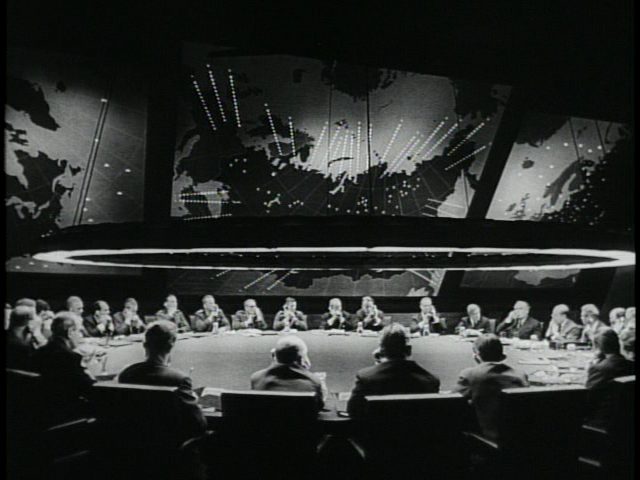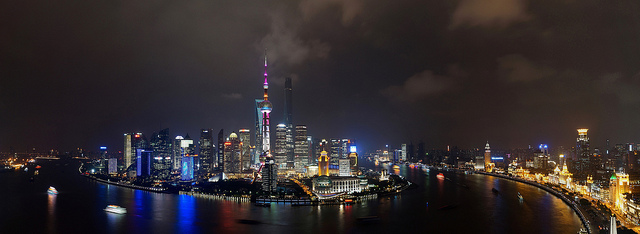“Dr. Strangelove or: How I Learned to Stop Worrying and Love the Bomb” was a film released in 1964. For those of you who haven’t seen it, I highly recommend you do. While it is a comedy, the film deals with a sinister and very real political issue at the time in which it was released. Without throwing too many spoilers, the film follows the story of an insane American General who orders a nuclear attack on the Soviet Union. This film was created while the dark shadows of the Cold War loomed over the world; the threat of a nuclear attack was very real.
Today, we don’t wake up fearing for our world, imagining it engulfed in flames and deadly radiation. On the other hand, we still read the news of bombs being dropped in Israel, Palestine, Syria and a few months ago in Baghdad, Iraq. Quite shockingly, the bomb that dropped in Baghdad was an “accident.” These accidents are not restricted to the Middle East. Any country in the possession of nuclear weapons is inherently at risk. America itself has had many close calls with its own nuclear warheads. In 1980 an airman conducting maintenance on a Missile in Arkansas dropped a socket wrench, piercing the skin of a missile, causing it to leak and leading to the evacuation of a residential area. This incident is not unique. With these facts in mind, should we really worry about world destruction by way of nuclear weapons? Realistically, I don’t think so – at least not tomorrow.
Weapons are everywhere, many states have them, many governments have them, and rebel groups and terrorists have them. Whether they’re large nuclear missiles or just grenades – a weapon is a weapon. It is still a threat – perhaps not one that will wipe out all of humanity, but one that threatens our individual humanity. Why do we have weapons? Rather, why do we have so many of them? As most accurately noted in Dr. Strangelove, “of course, the whole point of a Doomsday machine is lost if you keep it a secret! Why wouldn’t you tell the world?” why indeed. “Nuclear deterrence”, “nuclear proliferation deals” and “arms treaties” are on the lips of every politician and in the headlines of articles at the corner of the page of BBC, CBC, and CNN. There are several political theories that can explain the current atmosphere around international security and WMD.
“Deterrence theory” is the use of military threat as a way to maintain security and keep other nations from attacking. Theoretically, this makes sense. Like game theory or in the case of political science, democratic peace theory, all like-minded states would do the rational thing and not attack the other with nuclear weapons. Democratic peace theory does not account for non-democratic states – what about states with different intentions?
For example, the US-Iran conflict is centered over whether or not Iran should be permitted to keep its nuclear program. The West will argue, Iran is not a stable state; it is surrounded by unstable nations in the middle of conflict stricken areas. On the other hand, Iran will challenge the United States’ ultimate authority on whether nations should have the right to invest in nuclear programs; which may or may not be used to make weapons. Israel expresses its concerns most vocally. Being in such geographical proximity, it stands in a volatile position. While the United States is allied with Israel and poses itself as the defender, it too, along with several European states, stands vehemently against Iran’s nuclear program. As a result, the western world imposed economic sanctions on Iran and we can assume this would create an uncomfortable atmosphere for international security.
Many theorists have argued that if all nations were to have nuclear weapons, the likelihood of war would plummet. Perhaps they are correct. Kenneth Waltz, a famous international relations theorist, would argue: “Those who like peace should love nuclear weapons” and he continues: “They are the only weapons ever invented that work decisively against their own use.” In some ways this theory makes sense – why would you attack anyone who is equally capable of annihilating you? Indeed, everyone would mutually hold their “guns” in one hand and shake hands with the other. However, “good” intentions aside, what about human fallibility? What about technical failures? What about one deranged General? All these factors can easily lead to the triggering of an attack that no one intended. During the Cuban missile crisis John F. Kennedy and Nikita Khrushchev tried to avoid conflict, however, an American U-2 spy plane strayed into Soviet territory to test a missile – without Kennedy’s approval. This incident almost started another war and all of this happened without the knowledge of two very powerful leaders.
At the end of the day, even if all nations in the world had the best of intentions to keep peace, the very presence of nuclear weapons leads to a chance of nuclear war and destruction. On top of this moral precedence, stands the miscommunication, the technical, administrative and monetary costs and mishaps that could very easily lead to the dropping of a bomb. The world has spent far too long living in fear. It is natural of course that while the world begins to disarm, one nation or the other will hide something to have the upper hand, of course there will be at least one person who will say “Gee, I wish I had one of them Doomsday machines” – Dr. Strangelove or: How I Learned to Stop Worrying and Love the Bomb, 1964.





